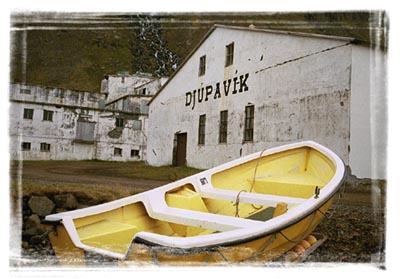Enn á ný sjáum við hvernig ákveðin svæði/staðir/brunnar fá nafn og eru með beinum hætti tengdir við sögu Hebrea. Þannig hefur 1. Mósebók í einhverjum skilningi gildi sem kröfugerð á þá brunna og það land sem afkomendur Abrahams grafa eða ná á sitt vald þegar þeir koma sér fyrir í fyrirheitna landinu. Continue reading 1. Mósebók 32. kafli
Tag: pilgrimage
It is personal: About The Quest for Celtic Christianity by D.E. Meek
Donald E. Meek takes it personally. Celtophiles (59) and plastic surgeons (190) are stealing his cultural heritage and religion. The elements that make him what he is. Meek’s account of the events are scholarly based, witty, ironic, and at times his anger is quite visible. His humor is wonderful, and from time to time, I laughed out loud, as I read through his description of contemporary Celtic Christianity. At one time I put the library book aside, grabbed my computer and ordered my own copy from amazon.com, thinking that this was one of the text books I had to own.
Yes, I liked Meek’s book, his meekness in the introductory chapter, his way of confronting the contemporary Celtic Christianity and the way he stands up against what he considers to be a theft of his own personal identity. Continue reading It is personal: About The Quest for Celtic Christianity by D.E. Meek
Fake Christians
No matter their background, Dean says committed Christian teens share four traits: They have a personal story about God they can share, a deep connection to a faith community, a sense of purpose and a sense of hope about their future.
“There are countless studies that show that religious teenagers do better in school, have better relationships with their parents and engage in less high-risk behavior,” she says. “They do a lot of things that parents pray for.”
Dean, a United Methodist Church minister who says parents are the most important influence on their childrens faith, places the ultimate blame for teens religious apathy on adults.
Some adults dont expect much from youth pastors. They simply want them to keep their children off drugs and away from premarital sex.
Others practice a “gospel of niceness,” where faith is simply doing good and not ruffling feathers. The Christian call to take risks, witness and sacrifice for others is muted, she says.
“If teenagers lack an articulate faith, it may be because the faith we show them is too spineless to merit much in the way of conversation,” wrote Dean, a professor of youth and church culture at Princeton Theological Seminary.
Listening to Karen Ward
I had the opportunity to listen to Karen Ward few weeks ago. Here are some of the things I heard, I am not sure she said it all though. Continue reading Listening to Karen Ward
Trúaðir á ferð og flugi
Í leit sinni að nýjum markhópum hafa ferðaskrifstofur hér í BNA í auknum mæli beint augum sínum að trúfólki. Á sama hátt hafa skoðanamótandi trúarleiðtogar, s.s. J.Dobson, markaðssett kirkjumiðstöðvar sínar sem ferðamannastaði.
Continue reading Trúaðir á ferð og flugi
Djúpavík
Það er sérkennilegt að koma í heim sem var og verður ekki aftur.

